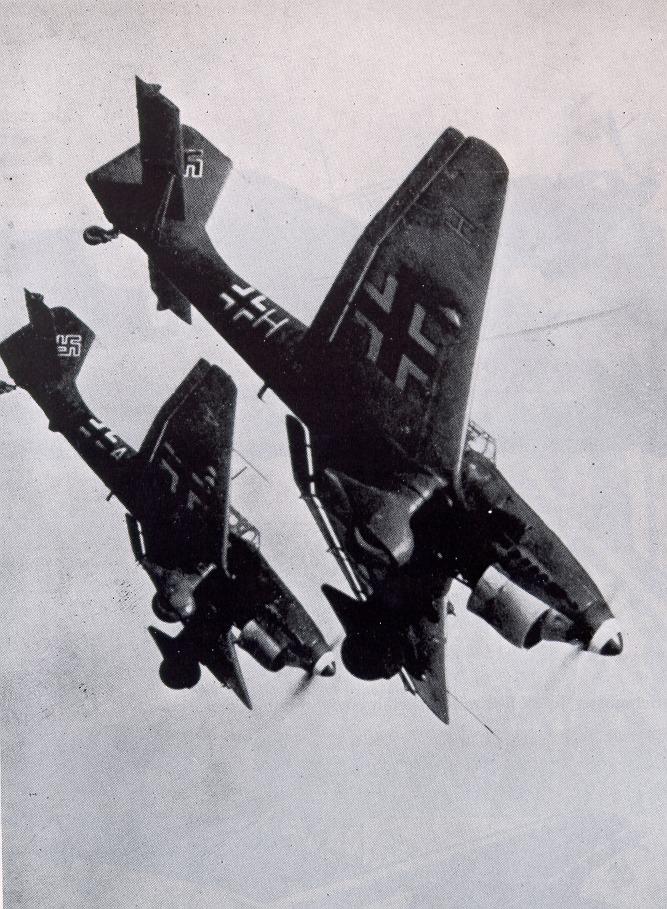Then came the most terrifying day of my life as a soldier so far. As we were going through a village our convoy became entangled with a long French Army horse-drawn artillery unit. Suddenly German dive-bombers – flights of STUKAS – appeared in the sky and proceeded to attack both convoys. We jumped out of our stalled trucks and took whatever cover we could. I found myself in the village cemetery lying behind a gravestone. The bombs – fitted with whistling devices – fell all around us and the carnage was indescribable. Dead and dying horses and men were everywhere.

An officer suddenly put in an appearance and shouted, “Every man for himself – try to get to Dunkirk.” As we had no maps or trans port we didn’t feel terribly pleased by this announcement, but gathered that we should head west and follow the ‘crowd’. After a while we had split up into small groups and I had teamed up with a man from Bradford who seemed quite resourceful. The condition of the local farm animals gave cause for great pity – cows had not been milked for some time, and many were wounded and in pain. We shot the worst cases, but we really couldn’t spare the ammunition to do more.
We walked for two days, resting in abandoned farms at night, and eventually we came to a fairly wide canal. My companion then informed me that he couldn’t swim, and as the sound of shelling and machine gun fire was getting ever closer we were faced with a dilemma. There was no bridge in sight, so we tore the door off a house and the Bradford man half lay on it with our rifles and kit whilst I towed it to the other side. We knew we were not far from Dunkirk as we could see huge oil fires burning in the distance and there seemed to be ever-increasing air activity.
Soon we entered the Dunkirk suburbs. There was much damage and not a soul to be seen. An old lady appeared from a cellar and I asked her where the British troops had gone. She pointed towards the oil fires, which were in the port area, and gave us a bitter reprimand about our abandonment of the French nation. We were in no mood to debate the matter, so we left hurriedly. In one street there was a bank with its doors and strong-room open. Thousands of French notes of every denomination lay scattered about. Thinking that we shouldn’t leave too much for the Germans we stuffed our pockets and battledress blouses. At least we would die rich.